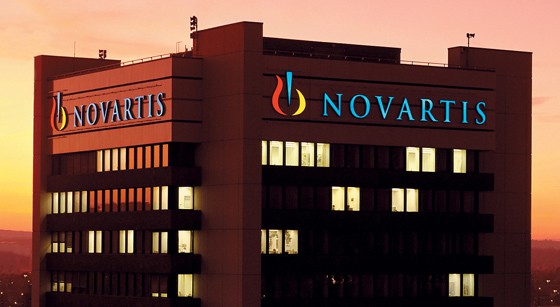
Novartis’ eyecare ambitions in the UK continued apace as authorities backed the Swiss pharma company’s drug Jetrea in final guidance.
The National Institute for Health and Care Excellence (NICE) said Jetrea (ocriplasmin) was a cost-effective use of NHS resources to treat patients in England and Wales who have the rare eye condition vitreomacular traction.
The decision means the drug is now the first non-surgical treatment available on the NHS to treat the condition, which involves the vitreous – the gel-like substance in the eye – pulling on the retina to distort vision and create a hole in the macular area of the eye.
“People affected by vitreomacular traction can suffer vision changes that have a significant impact on their lives, making it difficult to do everyday activities like reading, watching TV and driving.” said Tim Jackson, retinal surgeon at King’s College Hospital.
“This new treatment is a welcome advance, meaning some patients can now avoid surgery, and others who might not be suitable for surgery can now be treated,” he added.
NICE’s recommendation limits use of Jetrea compared to its European approval, which covers all vitreomacular traction patients.
Instead, the drug has only been backed for NHS use in patients who have a macular hole greater than 400 micrometres in diameter and who have severe symptoms, such as metamorphopsia, and do not have the related eye complication epiretinal membrane.
Nevertheless, the decision is a positive one for Novartis, which will market the drug through its eyecare division Alcon.
It is also good news for the drug’s original developers ThromboGenics, which sold non-US rights for Jetrea to Novartis in 2012 in a deal worth up to €375m, and is due royalties from Novartis’ revenues.
“This outcome marks the start of a paradigm shift in treatment as it means that physicians will be able to use the first and only pharmacological option to proactively treat this progressive disease much earlier and as soon as patients start experiencing symptoms such as metamorphopsia,” said Dr Patrik De Haes, CEO of ThromboGenics.
The recommendation is the latest in a busy year for Novartis in the UK, which includes the expansion of the NICE-recommended uses of its big-selling eye condition drug Lucentis (ranibizumab).
Novartis has also won the cost-effectiveness watchdog’s backing in 2013 for the Tobi Podhaler (tobramycin), a treatment for cystic fibrosis.
But the company has also suffered a number of disappointments, including NICE’s decision to turn down Afinitor (everolimus) for breast cancer and its refusal to back Jakavi (ruxolitinib) for blood cancer indications.




